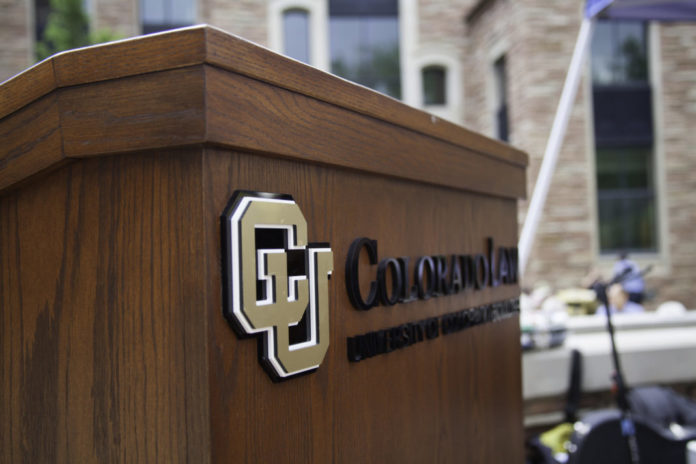
Legal experts came together April 14 for the 31st annual Ira C. Rothgerber Jr. Conference to discuss concerns surrounding the U.S. Supreme Court and “The Role of States in the Midst of Federal Court Crisis.”
This year’s conference at the Byron R. White Center for the Study of American Constitutional Law at the University of Colorado Law School featured guest panelists discussing a wide range of topics including civil, voting and reproductive rights.
Suzette Malveaux, a law school professor at the university and director of the center, said when brainstorming began for the conference they had a lot of ideas. But a few things stood out to them including citizens’ lack of faith in the U.S. Supreme Court. A September 2022 poll from Gallup showed 22% of respondents had no trust in the court, which is the highest number recorded since Gallup began tracking it in 1972.
“There are a lot of reasons for that,” Malveaux said during the conference. “On a procedural level the Supreme Court was increasing its controversial use of the shadow docket when making decisions that implicate the merits, there was a leak of a draft opinion on how the court might rule about the future of abortion rights … and then we have ethical issues swirling around the justices themselves.”
Malveaux noted a very polarized U.S. Congress has led citizens to turn to states to protect traditional democratic norms and institutions.
“The state of Colorado has really been a leader in terms of carving its own path,” Malveaux continued. “Whether it’s eliminating qualified immunity for police misconduct … or providing an array of voting methodologies to encourage robust voting, the state of Colorado has been at the forefront of trying to provide leadership and to protect a democracy.”
Malveaux added the goal of this year’s conference was to look at how states are grappling with the rocky terrain and dealing with each other. A key focus was also on what role states should be playing when responding to federal judicial and political conflict.
University of Colorado Law School Dean Lolita Inniss, who is in her second year at the school, said it’s an interesting time for the country when we think about the norms of democracy seemingly under assault.
“It’s not about a side of an issue,” Inniss said at the conference. “It’s really about the extent to which or whether we are going to be able to support and advance what we had all, I think, previously agreed [to], [which] were our procedural understandings, our philosophical understandings of what it means to be in a representative democracy.”
Keynote speaker Carolyn Shapiro, a law professor at Chicago-Kent College of Law and co-director of that college’s Institute on the Supreme Court of the United States, believes the Supreme Court has failed to protect democracy and argued for significant court reform.
“What the comparative and historical scholars tell us is that the transition from democracy to authoritarianism comes not through bloody coups, but by using the structures and institutions of democracy against it,” Shapiro said at the conference.
Shapiro noted in the U.S., bills have been introduced and passed in states that could make it more difficult to vote for some people and in some cases pro-democracy rhetoric was used.
The possibility of secession was another key point addressed by Shapiro.
“We find ourselves in a time where we hear voices on the right and the left flirting with secession,” Shapiro continued. “To my mind, this is unacceptable from both the right and the left. It is an all hands on deck moment.”
Shapiro argued the makeup of the current U.S. Supreme Court is a product of anti-democratic entrenchment, as former President Donald Trump, who lost the popular vote in his initial run, appointed three justices.
“The anti-democratic composition of the court combined with its anti-democratic jurisprudence means that court reform really might be existential,” Shapiro said. “Changing the makeup of the court in the short run, I would argue by adding seats, may ultimately be necessary for the survival of the union, and if the stakes are that high, it might actually happen.”
There were also three panel discussions at the event with topics including “State Responsibility in the Face of Civil Rights Regression;” “The Gutting of the Voting Rights Act and its Impact on Judicial Legitimacy;” and “The Battle Over Abortion at the State Level.”
Ira Rothgerber Jr. taught law in Colorado at the University of Colorado Law School and University of Denver Sturm College of Law. The annual conference focuses on current constitutional law issues.
To view the entire conference, click here.

